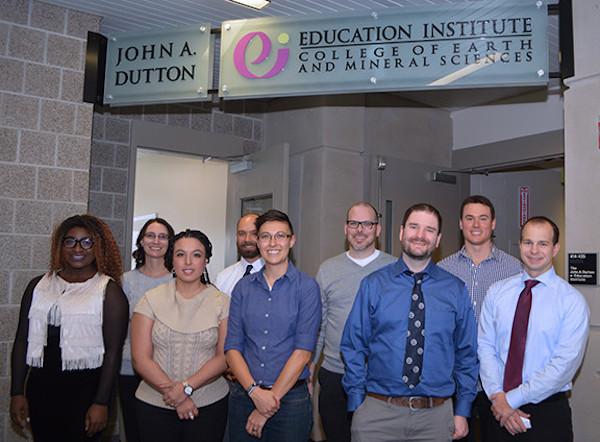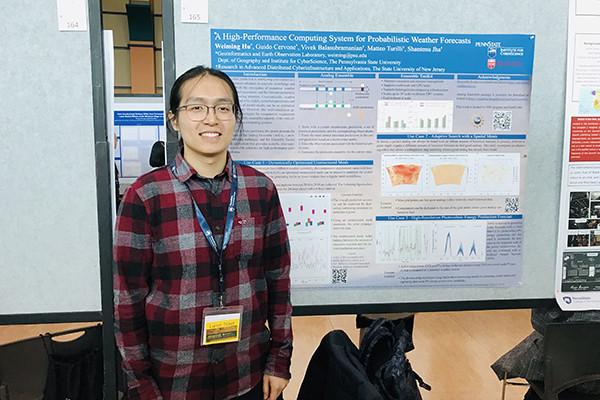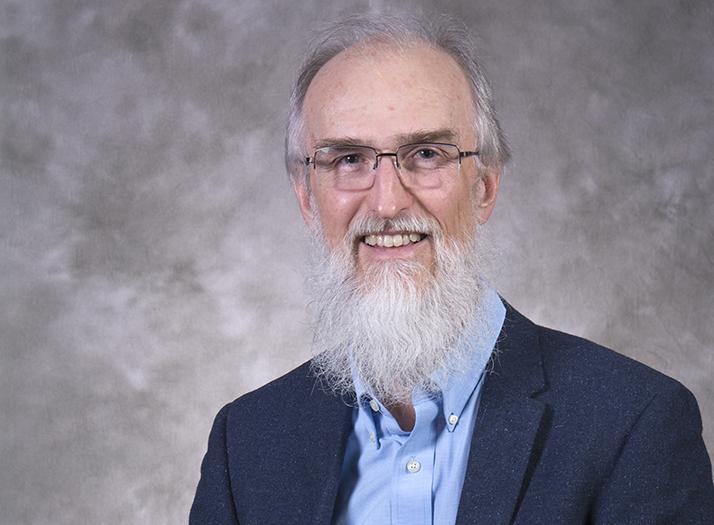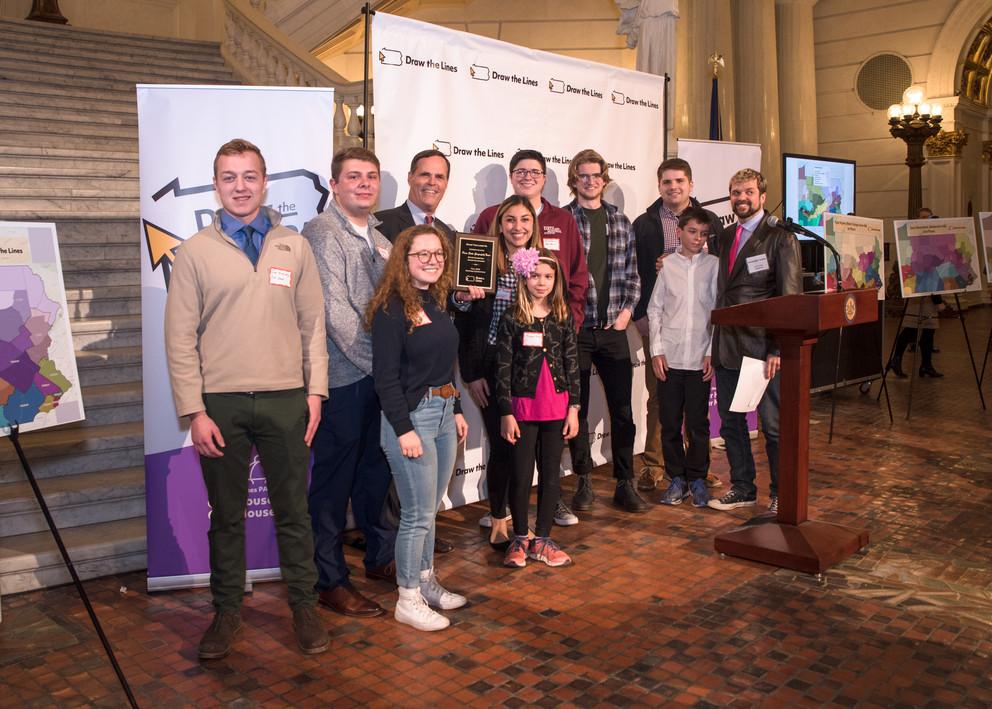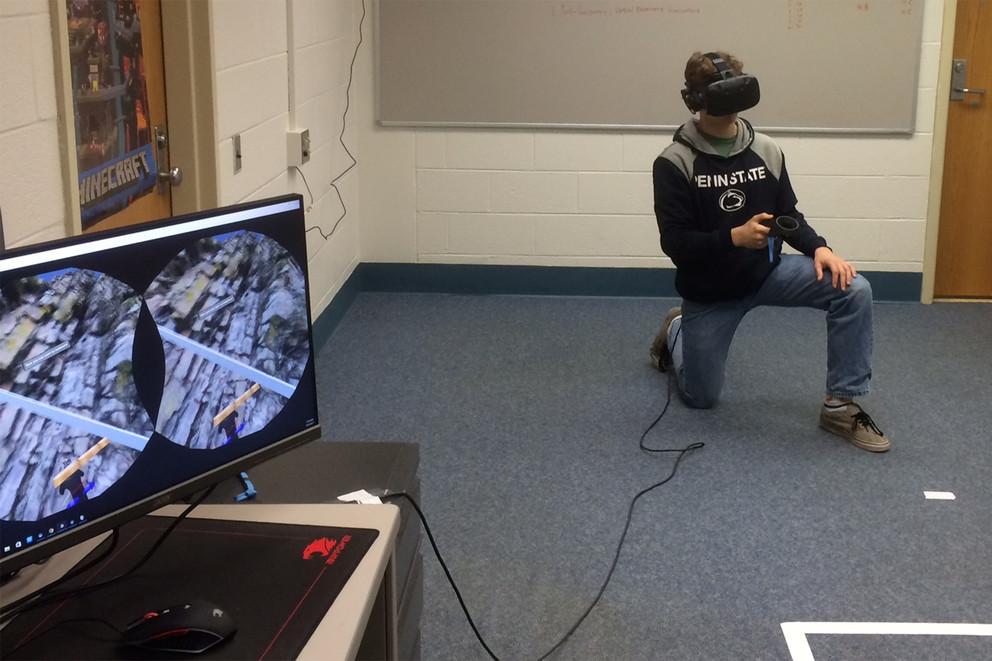Here is something to think about: Some of Penn State’s current Department of Geography students weren’t even born when Online Geospatial Education at Penn State offered its first class. While online classes are now considered normal, for the educators who launched these distance education courses in the late 1990s, it was a novel and risky venture.
Nicholas Lacey stepped out of the helicopter and into a crowd of people who gathered in anticipation.
The helicopter carried building materials, but for the people of Haiti, who were still suffering from the aftermath of Hurricane Matthew, a devastating Category 5 storm, it was critical material to start rebuilding homes and lives.
Lacey, now a first-year student studying geography at Penn State, served five years in the Marine Corps as a geospatial analyst and took part in a U.S. humanitarian mission to Haiti in 2016.
There, he used his background in geospatial information science (GIS), leading a team to analyze damaged infrastructure and take inventory of damaged buildings, electric lines, roads and landing zones.
For Lacey, it was a chance to put his training in GIS to good use, but also an eye-opening experience.
Two graduate students in the College of Earth and Mineral Sciences were recognized for their research and presentation skills during the 2019 Graduate Exhibition, hosted by the Graduate School at Penn State in March. Kirsty McKenzie, a graduate student in geosciences, and Weiming Hu, a graduate student in geography, placed second and third, respectively, in the physical sciences and mathematics division of the exhibition.
Hu, a third-year doctoral student, studies uncertainties in weather forecasting, focusing on reducing computational requirements to run the models. His research aims to improve the computing time and efficiency of weather prediction. He is using his programming skills and statistics knowledge to determine how much data can be omitted while still retaining accuracy in weather forecasts.
UNIVERSITY PARK, Pa. — Alan MacEachren, professor of geography in the College of Earth and Mineral Sciences, and Esther Prins, professor of education in the College of Education, have received Penn State's 2019 Graduate Faculty Teaching Award.
The award, established in 1992 by The Graduate School, is presented to faculty members in recognition of outstanding teaching performance and advising of graduate students.
UNIVERSITY PARK, Pa. — As decision makers balance economic, environmental and social aspects of living, planners and others need decision-making tools that support the process, but do not dictate the outcomes, so that trade-off choices can reflect a wide array of needs, according to a team of researchers who looked at an interactive program using trade-off diagrams.
Future conditions in California may include more rain rather than snow during the wet season, longer fire seasons, and higher temperatures leading to drier fire seasons, according to a team of researchers who looked at the historic patterns of the North Pacific Jet, precipitation and fire.
Penn State’s Social Science Research Institute (SSRI), in collaboration with the Institute for CyberScience (ICS) and the College of Information Sciences and Technology, has awarded over $100,000 in funding to support six new interdisciplinary teams of Penn State researchers whose work is aimed at developing innovative research programs using Twitter data.
Penn State Professor Christopher Fowler’s fall 2018 GEOG 421: Population Geography class won first place in the Higher-Ed division of the “Draw the Lines PA” statewide finals in February. For Fowler, the work on how to get better representation in Pennsylvania is just beginning.
People around the world paint their walls different colors, buy plants to spruce up their interiors and engage in a variety of other beautifying techniques to personalize their homes, which inspired a team of researchers to study about 50,000 living rooms across the globe.
In a study that used artificial intelligence to analyze design elements, such as artwork and wall colors, in pictures of living rooms posted to Airbnb, a popular home rental website, the researchers found that people tended to follow cultural trends when they decorated their interiors.
UNIVERSITY PARK, Pa. — Imagine a world where space and time do not matter, where it’s possible to witness critical events in the history of the Earth and humankind, or have a sneak peek into the future.
That’s what Penn State researchers, through the help of immersive technologies such as virtual reality (VR) and investments in the University's infrastructure, are hoping to accomplish with a Penn State Strategic Plan seed grant.
In two pilot experiences, Penn State students are traveling to Iceland to investigate the inner workings of a volcano and jaunting to a place to study its environment more than 425 million years ago, all without setting foot outside the classroom.


